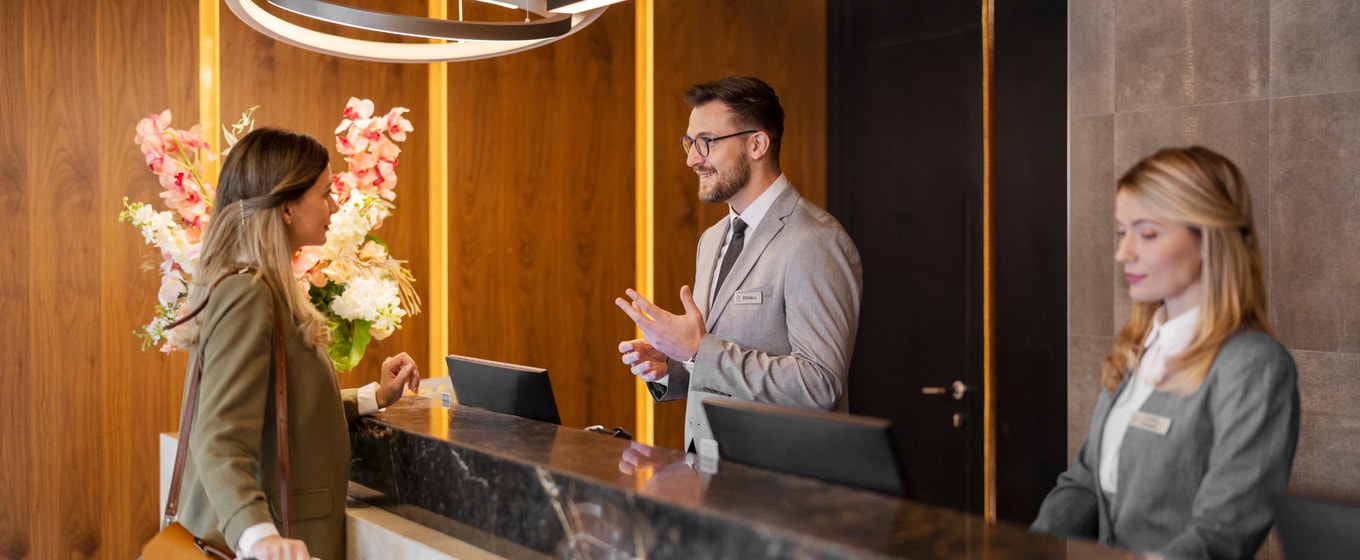With the recent E.Coli outbreak, news of soaring hospital admissions for foodborne illnesses, and ongoing discussions around the introduction of Owen’s Law, there are a lot of eyes on the hospitality sector right now.
While the heightened discussions around food safety is positive, helping to educate consumers on what’s acceptable and what’s not when dining out, businesses are becoming more vulnerable than ever to negative mentions and reviews online.
A single negative review can be anything from disheartening to damaging, depending on its nature. Realistically, one negative comment among many good ones is not going to have too much of an impact, but a wave of 1-star reviews? Well, you may have an issue on your hands in clawing back reputation and customer confidence.
How restaurant reviews impact people’s decisions
There is no shortage of studies that involve consumer behaviour. According to Toast, only 18% of individuals “never or rarely check” a restaurant’s online rating and review before going. One in ten consumers will also leave a restaurant review after their experience.
Of course, reviews are a great indicator of a well-run establishment that prioritises customer service and food safety - but get it wrong and watch those stars fall. Another study reveals how 22% of people will not dine at a restaurant after reading just one negative review. After three negative reviews, that number jumps to 59%.
Of course, that’s only taking into account people that are leaving feedback online - what about others using word of mouth or social media to vent?
What leads to diners airing their frustrations?
The reality is, there are many reasons why someone would leave a bad review for a hospitality business, whether that be a cafe, bar, hotel, or restaurant. And in some cases, there may be more than one thing mentioned. Some common issues include:
- Poor customer service: rude or unhelpful staff can significantly sour a customer’s experience.
- Food quality and safety issues: sub-standard food, incorrect orders, or hygiene concerns can all be a contributing factor.
- Atmosphere and ambiance: a noisy, uncomfortable, or unclean environment can deter customers from coming back. The visual appearance and cleanliness of customer areas is so important.
- Pricing concerns: overpriced items or feeling like they just aren’t getting enough for their money can leave diners feeling dissatisfied.
- Unexpected changes: changes to the menu, service, or pricing without proper communication may lead to confusion and frustration.
Recovering from and preventing negative reviews
Realistically, no business is ever going to achieve and/or maintain a 100% positive review rate; in fact, that may seem like a red flag in itself! But it’s how you deal with it, the actions you take, and what you learn from it that’s key. Here’s what to do if you find yourself facing feedback that’s less than favourable:
1. Act fast, but don’t let emotions rule
Your initial reaction to poor reviews (or a flood or them) may be panic, anger, frustration, or upset. It’s understandable to feel some of these emotions, especially when it’s your first one, or if you feel it’s unjustified - but it’s important to keep those emotions in check. Responding impulsively can exacerbate the situation, and besides, what message does that give to others if you’re seen to be defensive and rude?
Take a moment and assess the situation objectively. Try to investigate and gather as much information as you can before you take to the keyboard and type out your reply. Is it an isolated issue you’re dealing with, or is there a theme that’s developing?
If there is more than one review in relation to the same area (i.e. food safety), think about whether there have been any changes that could have led to this spike in feedback? Have you changed suppliers, experienced staffing issues, or introduced new procedures that could have contributed to a decline in quality service?
2. Respond professionally and personally
It’s not the time to bury your head in the sand when you read a negative review. You can’t pretend it doesn’t exist, especially when statistics claim that more than half of customers won’t use businesses that ignore their reviews.
Ideally, a response should come within 24 hours. Write it professionally, with empathy; even if you feel the criticism is unwarranted it’s important to show a disgruntled customer that you take their feedback seriously, and you don’t want to appear argumentative in any way.
There are templated replies you will find online, but it’s always best to take the personal approach. No-one wants to receive a standard response to their grievances, nor do customers who are using online review platforms to decide where to stay or eat. If known, address them by their name and recite some of what they’ve said in your own acknowledgement; that way they’ll know it’s been written specifically in response to what’s been said.
If it’s a review on an open platform, be mindful that your feedback will be published for everyone to see and it will be read by customers, new and old!
3. It’s time for a team meeting
Not every review will warrant a team meeting, but when there has been a spate of criticism, it’s best to be transparent with your staff. Discuss the reviews openly and encourage open-minded communication. Has the team noticed any issues that could be contributing to these low ratings? Is there anything immediate that can be done to rectify the issue, or does an action plan need to be put into place? This will ensure better team engagement and if you look after your staff, they will look after you and you can all take pride in what can be achieved and improved together as a team.
4. Review procedures and make improvements
What you do next will depend on the concern at hand. If customers have complained about slow service, consider whether your staffing levels are adequate, or if additional training is required. If food quality or safety is a problem, review your suppliers and food safety protocols, such as the storage, preparation, and cooking of the food. Also be mindful that customers may have also complained to their local council EHO which could initiate an investigation.
Every hospitality business should have a robust food safety management system (FSMS) in place. This is a comprehensive framework that helps staff to identify, control, and prevent food safety hazards, and may contain documents such as checklists, cleaning schedules, temperature logs, and training records.
If you’re still doing this via pen and paper, think about ‘going digital’ for better organisation, efficiency and transparency. Having everything all in one place is also helpful should you receive an unexpected visit from an environmental officer (who can inspect your premises at any time).
5. Make time for regular internal audits
The fast-paced nature of hospitality may leave you feeling like you don’t have enough time for an audit, but a proactive strategy is necessary if you want to achieve excellence and keep those negative reviews at bay.
Monthly spot checks should be done to provide a top-level overview of food safety procedures, helping to identify any causes for concern early on. An in-depth audit is recommended every six months to one year, taking a more granular approach to reviewing and refining operations.
How you score each area is up to you, from a simple ‘yes/no’ response to a risk matrix which scores the ‘likelihood’ and ‘consequence’ of a risk from zero to five. Auditors can also use a traffic-light priority system to organise their findings and help their team quickly visualise what needs correcting first.
If you’re not sure on how to carry out these checks effectively, or if you want a fresh pair of eyes, then a third-party, independent auditor can help.
6. Re-train staff (and keep them motivated)
Your staff are the face of your business, and their performance is critical to customer satisfaction. After a series of poor reviews, it’s essential to look at where your team would benefit from a refresher. Soft skills should also be covered, training staff on communication, conflict resolution, and customer service - including how to handle complaints.
Members of staff that have even minimal contact with food, such as food service, should complete Level 1 Food Safety Training. This covers the basics of safety, namely cleaning and disinfection techniques, personal hygiene when handling food, and common food hazards.
Allergen awareness is covered at Level 2. This has become especially important since the introduction of Natasha’s Law in 2021, and with talks of more stringent allergen regulations being put into place.
It’s also important to recognise that a series of negative reviews can be demoralising for your team. Offering support and encouragement during this challenging time is vital. Celebrate small victories and improvements to keep your staff motivated and focused on delivering exceptional service.
7. Encourage positive reviews
To counteract the negative reviews, encourage satisfied customers to leave positive feedback. This can help you balance your overall rating and show potential customers that the negative experiences were isolated incidents (plus, it helps if people can see your prompt replies below each review).
Make it as easy as possible for customers to leave a review. One way to do this is through the creation of QR codes that can be scanned, taking browsers directly to your preferred review site.
8. Monitor and benchmark
Ongoing monitoring of your online reputation is essential. Set up alerts for new reviews so that you can respond promptly and spot any recurring themes early. A reputation management tools/social media tracking tools can help with this by aggregating ratings from multiple online platforms, such as Google, Yelp, Facebook, and X. These platforms will also give you insight into the sentiment of the feedback (positive, neutral, or negative), and benchmark your catering business against your competitors.
In conclusion
A spate of poor reviews can be unsettling, but if you see each one as a potential lesson to be learned, rather than just criticism, you’re less likely to be ruled by emotion and see opportunities to make improvements and strengthen your catering business.
About the author
Kirstie Jones is head of client services and environmental health expert at Navitas Safety. Navitas Safety provides businesses with health and safety and food safety solutions, particularly in the hospitality, leisure, and care home sectors, helping them to achieve the highest commendation during official food or CQC inspections.








These cookies are set by a range of social media services that we have added to the site to enable you to share our content with your friends and networks. They are capable of tracking your browser across other sites and building up a profile of your interests. This may impact the content and messages you see on other websites you visit.
If you do not allow these cookies you may not be able to use or see these sharing tools.